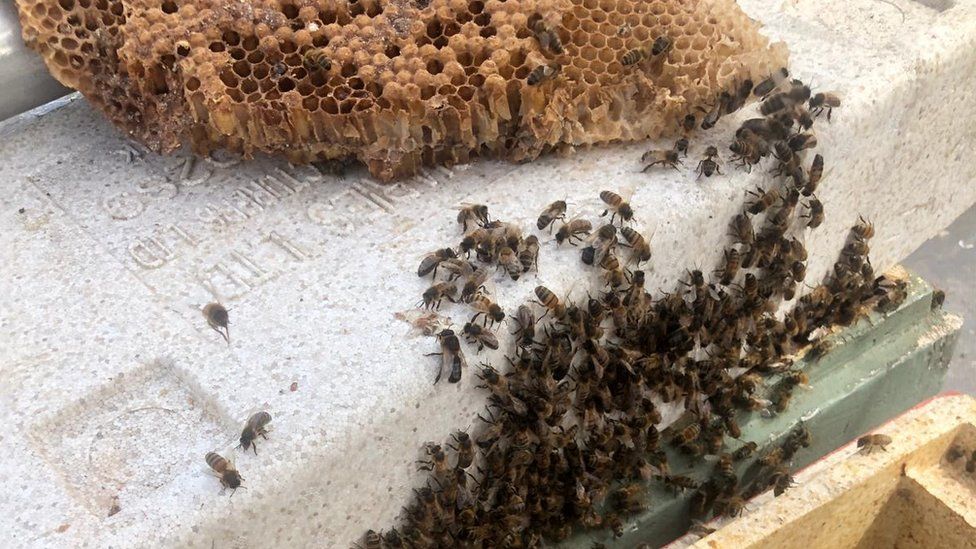



Article by: Hari Yellina
As authorities try to stop the spread of a fatal parasite, hundreds of beehives are being destroyed in Newcastle and other areas of New South Wales. Last week’s discovery of the varroa destructor, also known as the varroa mite, in the Port of Newcastle led to the creation of a 10-kilometer eradication zone and a halt to all bee movement within the state. 300 hives in the area have already been designated for destruction by the Department of Primary Industries and Local Land Services during the coming days.
NSW Agriculture Minister Dugald Saunders stated that “so far, just around the Newcastle area, there has been six sentinel hives and three private hives that have been demolished and that will continue over the next day or so.” Additionally, yesterday in Trangie, 120 hives were destroyed after government contact tracers discovered a commercial beekeeper close to the port had recently sent some of his hives there. Despite the fact that the mite had not been found in the Trangie hives, it was decided to destroy them as well because they came from the same property, according to Mr. Saunders.
He claimed that investigations were being conducted to find any other movements that would have disseminated the parasite. “We are currently conducting extensive research to determine the whereabouts of other hives. “Whether you raise bees for fun or for profit, we sincerely encourage you to come forwards and contact the DPI and report places where you do have hives.” According to commercial blueberry grower Vik Momi, the restrictions prevented him from moving the bees he had been keeping on his Glenreagh property to the crops that required them. The plants must be moved into the summer crop since they will soon begin to blossom, he said.
According to the NSW regulations, “[my beekeeper] says he can’t move them; he is only authorised to move them no farther than 3 metres.” Mr. Momi claimed that in order to ensure that his fruit met consumer standards and pollinate his crop, he depended on bees. Pollination enhances the quality of the fruit, therefore it’s crucial for everything, he said. They increase their size, juiciness, and flavour. “We won’t get nice enough berries without bee pollination.”
More than simply blueberries will be impacted by a large varroa mite outbreak or a major reduction in bee activity. Some of the 35 agricultural businesses dependent on bee pollination are those producing almonds, apples, and cherries. Media personnel contacted a number of organisations representing the fruit and vegetable industries, and several of them stated that it might take several weeks before the effect on produce pricing is clear. Producers claim it is challenging to predict price increases because the end date for the mobility restrictions is unknown.